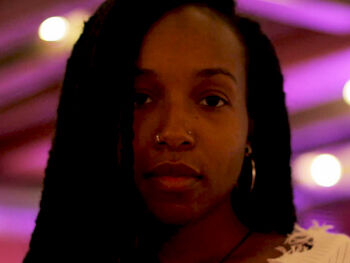University News Last updated 11 February 2022

UK public broadcasters need to develop clear new guidelines to ensure Black representation in documentaries does not perpetuate stereotypes which commonly boil the Black experience down to racism, crime and music, new research has found.
Studies funded by Birmingham City University’s Sir Lenny Henry Centre for Media Diversity assessed the types of documentaries screened on public service broadcasters' on-demand services to examine how outlets portrayed Black people on screen.
The research, carried out by BAFTA nominated documentary maker Cherish Oteka, found that where Black people were featured in documentaries the leading topics were race and racism, crime and music.
The report reveals that documentaries screened by broadcasters including the BBC, ITV, Channel 4 and Channel 5, fail to screen nuanced Black stories but instead perpetuate sometimes harmful stereotypes on screen.
The study looked at 275 documentary programmes and was collated using Video-on-Demand services across Public Service Broadcasters in April and May 2021.
The report also spoke to eight Black professionals working within the documentary genre and raised concerns that commissioning Black programming was often done without the input of Black people. The findings highlighted a lack of career progression for Black media workers, leading to limited editorial control or commissioning power.
The report recommends the development of a Black equivalent to the Bechdel-Wallace Test, a standard developed to monitor the representation of women on screen. To promote layered representation of women, the Bechdel-Wallace Test asks if a movie features at least two female characters who are both named and have a conversation during the film about something other than a man.
Speaking about the report, author Cherish Oteka said: “It's been a real honour to work alongside The Sir Lenny Henry Media Centre for Diversity to explore Black representation in UK documentaries.
“The media holds a great amount of power in informing perceptions and it is key that Black people are portrayed in multi-layered, nuanced and varied ways - as we experience in our day-to-day lives.”
The report set out three key recommendations:
- While talking about crime and racism is important, when they are the main topics portrayed about the Black experience, it can reinforce Black people as an other and stigmatise underrepresented voices
- Although more Black people are working in the industry, structural changes are needed to ensure better Black representation of decision makers, editors and commissioners to make sure Black people can tell their own stories as well as stories about other topics of interest
- A Black equivalent should examine if the central theme of a programme links to a crime that has been committed by a Black person; whether the programme’s main themes are solely about Black people being the victims of racism without highlighting Black people who have empowered themselves in their communities; and whether the film presents Black people in stereotypical roles.
Cherish Oteka began their career in broadcasting, working across content selection, acquisitions and content curation for leading broadcasters. Cherish has since made documentaries with a range of well-known brands and broadcasters including BBC, London Live, SBTV, Tate, Stonewall and most recently BFI and The Guardian.
Also selected on well-respected talent schemes including Edinburgh Television Festival’s One’s to Watch, Sheffield Documentary Festival’s Doc Next and The Grierson Trust’s Doc Lab.
In 2016, Cherish won UKTV’s Rising Star Award. The following year they also won Best Documentary at the Movie Screen and Video Awards. Cherishs' latest project, The Black Cop has been nominated for a BAFTA.
'Cherish’s report was funded by a PIMID * grant from the Sir Lenny Henry Centre for Media Diversity which was developed to examine representation across all forms of the UK’s media.